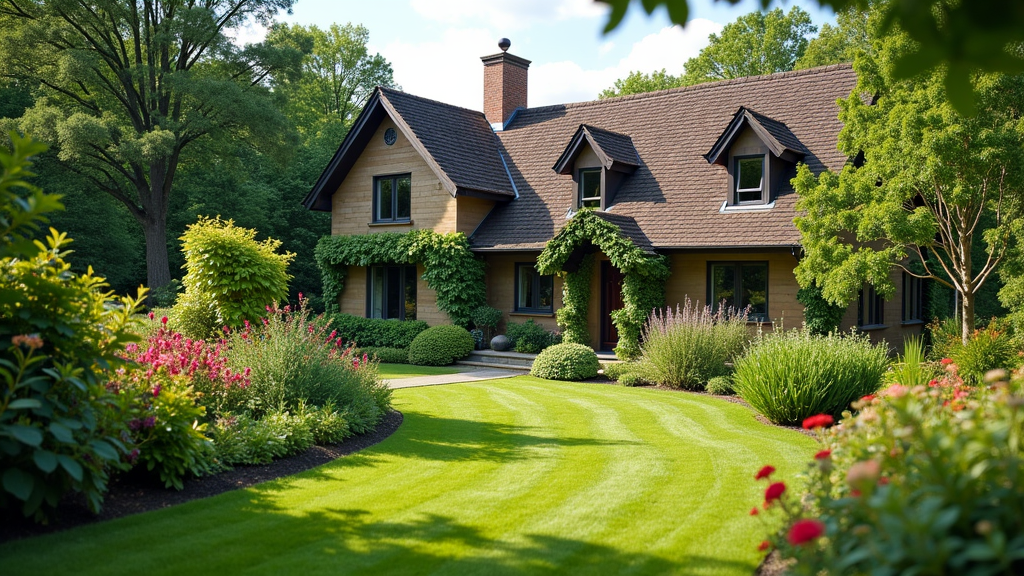Introduction
Landscaping is more than just planting flowers and mowing the lawn; it's an art that requires a deep understanding of the land, environment, and local climate. In Greensboro, NC, homeowners and landscapers face unique challenges that can hinder their landscaping endeavors. From soil quality issues to weather fluctuations, knowing how to navigate these challenges is crucial for creating a thriving outdoor space. This article explores "Landscaping Challenges Unique to Greensboro and How to Overcome Them," providing insights and solutions for both novice gardeners and seasoned landscapers alike.
Landscaping Challenges Unique to Greensboro
Understanding Greensboro's Climate
Greensboro experiences a humid subtropical climate, characterized by hot summers and mild winters. This climate can significantly affect landscaping choices.
Temperature Variations
During summer months, temperatures can soar into the 90s Fahrenheit, while winter brings occasional snow and freezing temperatures. Understanding these variations is essential for selecting the right plants.
- Summer: Ideal for heat-loving plants like hibiscus or coneflowers. Winter: Must consider frost-tolerant options such as pansies or ornamental kale.
Humidity Levels
High humidity levels in Greensboro can encourage plant diseases. Choosing disease-resistant varieties is key.
Rainfall Patterns
Greensboro receives about 45 inches of rain annually, which can lead to drainage issues if not managed properly.
Soil Quality Issues
The soil in Greensboro presents its own set of challenges. Soil types range from sandy loam to clay, each having distinct properties.
Clay Soil Dilemma
Many areas in Greensboro have heavy clay soil that retains water but lacks nutrients.
- Solutions: Amend with organic matter like compost. Consider raised beds for better drainage.
Nutrient Deficiency
Soil testing may reveal a lack of essential nutrients affecting plant growth.
- Solutions: Regularly test your soil. Use fertilizers tailored to local soil needs.
Pest Problems
Pests can wreak havoc on gardens in Greensboro. Common culprits include aphids, spider mites, and Japanese beetles.
Integrated Pest Management (IPM)
Adopting IPM strategies helps manage pests without harsh chemicals:
- Natural Predators: Introduce ladybugs or lacewings. Companion Planting: Certain plants repel pests or attract beneficial insects.
Overcoming Landscaping Challenges in Greensboro
Choosing the Right Plants for Your Landscape
When selecting plants for your landscaping project in Greensboro, consider native species that thrive in the local environment.
Native Plants
Native plants require less maintenance and are more resistant to local pests and diseases:
- Examples: Eastern Redbud Black-eyed Susan Carolina Jessamine
Drought-Tolerant Options
Given potential summer droughts, incorporating drought-resistant plants ensures your garden remains vibrant:
- Examples: Sedum Lavender Ornamental grasses
Effective Drainage Solutions
Poor drainage can be a significant challenge in many yards across Greensboro. Here’s how you can tackle this issue:
French Drains
Installing French drains helps redirect excess water away from critical areas of your landscape.
Rain Gardens
Create a rain garden using native plants designed to absorb excess rainfall efficiently while adding beauty to your yard.
Seasonal Landscaping Strategies
Spring Preparations
In springtime, homeowners should focus on preparing their gardens for the growing season ahead.
Soil Preparation
Loosen compacted soil and add organic matter as necessary.
Planting Schedule
Timing is everything! Start with cool-season crops or flowers early in spring before transitioning to warm-season varieties later on.
Summer Maintenance Tips
Once summer hits, it’s crucial to keep your landscape healthy amid heat stress:
Watering Regimens
Water deeply but less frequently; this encourages root development while conserving water!
Fall Cleanup Techniques
As leaves fall and temperatures drop, fall cleanup becomes vital for maintaining landscape health:
Mulching Benefits
Apply mulch around trees and shrubs; it helps retain moisture and suppress weeds during winter months!
FAQs About Landscaping in Greensboro
What are common landscaping mistakes made by homeowners in Greensboro?
Many homeowners overlook the importance of choosing native plants suited for our climate conditions. Ignoring soil quality also leads to issues down the road!
How often should I water my garden during summer?
Typically, watering once or twice a week should suffice; however, factors such as rainfall amounts https://penzu.com/p/c6859f6393846cf3 must be taken into account.
Can I grow vegetables year-round in Greensboro?
While some crops do well year-round (like kale), most vegetables thrive during specific seasons due to temperature sensitivities!
What fertilizers are best suited for Greensboro's soil?
Using slow-release organic fertilizers tailored specifically towards local flora will yield optimal results without risking runoff pollution!
Are there landscaping services available specifically focused on eco-friendly practices?
Absolutely! Numerous landscaping companies prioritize sustainable methods like xeriscaping—reducing water usage through thoughtful design choices!

How do I control weeds effectively without using chemicals?
Embrace manual weeding techniques combined with mulch application; this natural approach reduces weed growth while nurturing existing plant life!
Conclusion
Navigating the unique landscaping challenges present in Greensboro demands both knowledge and creativity. By understanding local climate conditions, improving soil quality, managing pests effectively, and selecting appropriate plant species, residents can overcome these hurdles successfully. Whether you're aiming for a lush flower garden or an efficient vegetable patch, remember that every challenge encountered along the way offers valuable lessons toward achieving your dream landscape! So why not roll up those sleeves? Let’s get started on creating your stunning outdoor oasis today!